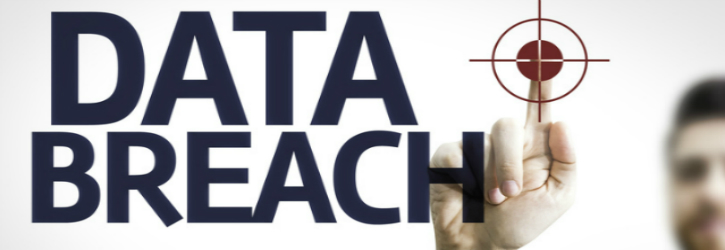
Welcome To The Data Leak Lawyers Blog
We focus on the latest news surrounding data breaches, leaks and hacks plus daily internet security articles.

We focus on the latest news surrounding data breaches, leaks and hacks plus daily internet security articles.

Although we deal with data leaks primarily over here in the UK, we report on the common ones in the U.S. as well as it serves to show just how serious and how often breaches, leaks, and hacks are happening.
It is an everyday problem.
In America, a lawsuit has been filed against healthcare system, Banner Health. The lawsuit against Banner Health is a class-action lawsuit that has been filed by a Glendale doctor, Dr. Howard Chen. The class-action is being brought because of a cyber-attack on Banner Health that resulted in 3.7 million patients, employees, cafeteria customers, and other people’s information being compromised.
read more

Newkirk Products Inc, a company in America which provides ID cards for health insurance plans, has revealed that a data breach took place that allowed unauthorised access to a server that contained a wealth of member information.
The server that was hacked contained data which included names, addresses, and dates of birth for members. Banking or credit card details, medical information, and social security numbers, were reportedly not on the server, the company has said.
It is estimated about 3.3 million members of the insurance plan have been affected by the data breach, but there is no evidence that the data has been used inappropriately. As of yet…
read more

A cyber criminal from the Ukraine admitted on twitter to stealing 105,000 documents from the Central Ohio Urology Group. The documents included patient names, diagnosis information, addresses, and dates of birth. The Urology group is meant to be the second biggest health system in the state with 24 locations.
A screenshot was posted on twitter by the alleged cyber criminal listing stolen information with claims that some 156GB of data had been uploaded to a Google Drive.
No comment has been made by the Central Ohio Urology Group, but one thing is for sure: this is a serious breach.
read more

Yahoo are currently investigating the potential data leak by the hacker who was linked to the “mega-breaches” of MySpace and LinkedIn; a topic we recently covered.
The hacker has allegedly posted the details of 200 million Yahoo accounts onto the ‘dark web’ and is selling them for three bitcoins (£1,360).
The hacker is using the same name – ‘Peace’ – that was used from the 2012 data leaks, which makes the hacker “most likely” to be the same person. Yahoo is currently “working to determine the facts” and are taking the claim “very seriously”.
read more

While chip and pin is widely used in Europe, the US has only just started to use the technology.
Concerns across the pond are that this makes them a new target for hackers, according to researchers at the Black Hat conference in Las Vegas.
They demonstrated how hackers were able to use mostly unmodified ATM machines to dispense hundreds of dollars -similar to how hackers would possibly use the machines.
read more

Its been confirmed that O2 customer data has been found for sale on the dark web which experts believe the data came from a hack several years ago from a gaming website called XSplit.
The log-in details were stolen from XSplit and were then matched with a number of O2 accounts, allowing the hackers access to customer’s personal information. This is known as credential stuffing.
Despite being told not to, a large percentage of online users reuse the same login details for numerous sites, making them especially vulnerable to having their data hacked. The hackers accessed customer’s personal information such as phone numbers, emails, and date-of-birth. This is all personal information that can be used for fraudulent purposes.
read more

We’re already acting for a number of individuals who have been affected by the Greenwich University data leak from earlier this year, when it was discovered that personal student information was accessible online. Our Data Leak Lawyers are already representing victims of that breach, but now a second significant data breach has occurred as well.
Medical conditions; personal conversation records; full names and contact information; coursework; email account information; and student disability information is amongst data that was available online following a so-called “revenge hack” from a former disgruntled student.
read more

Some 427 million passwords were accessed as part of the Myspace hack, and although hardly anyone uses Myspace these days, there is still a very big threat to your online security.
So, should you be concerned?
If you had a MySpace account before 2013 then your (probably redundant) account details have possibly been hacked, and if you use the same passwords and log in details to this day, and the same email address, there is cause to be very concerned indeed.
read more

Literally hundreds of millions of Myspace and Tumblr user account details, reportedly hacked a few years ago, have surfaced for sale on the dark web.
News of the incident comes just days after the scale of the 2012 LinkedIn hack widened when millions of account details from the previous hack appeared online for sale, and security experts believe there may be a link given data from separate historic hacks is being put up for sale in such a short period of time.
News of this breach has increased fears for online safety with experts suggesting more may be on the way.
read more

Back in 2012, LinkedIn suffered a major hack with a reported 6.5 million users affected. Hacked data included user information – email addresses and partial passwords – and LinkedIn users were told back in 2012 to change their passwords.
Four years on and more account details, allegedly from the same 2012 hack, have now emerged online, and the figure we’re talking about is now 117 million.
read more
EasyJet admits data of nine million hacked
British Airways data breach: How to claim up to £6,000 compensation
Are you owed £5,000 for the Virgin Media data breach?
Virgin Media faces £4.5 BILLION in compensation payouts
BA customers given final deadline to claim compensation for data breach
Shoppers slam Morrisons after loyalty points stolen
Half a million customers can sue BA over huge data breach
Lawyers accuse BA of 'swerving responsibility' for data breach
The biggest data breaches of 2020
Fill out our quick call back form below and we'll contact you when you're ready to talk to us.